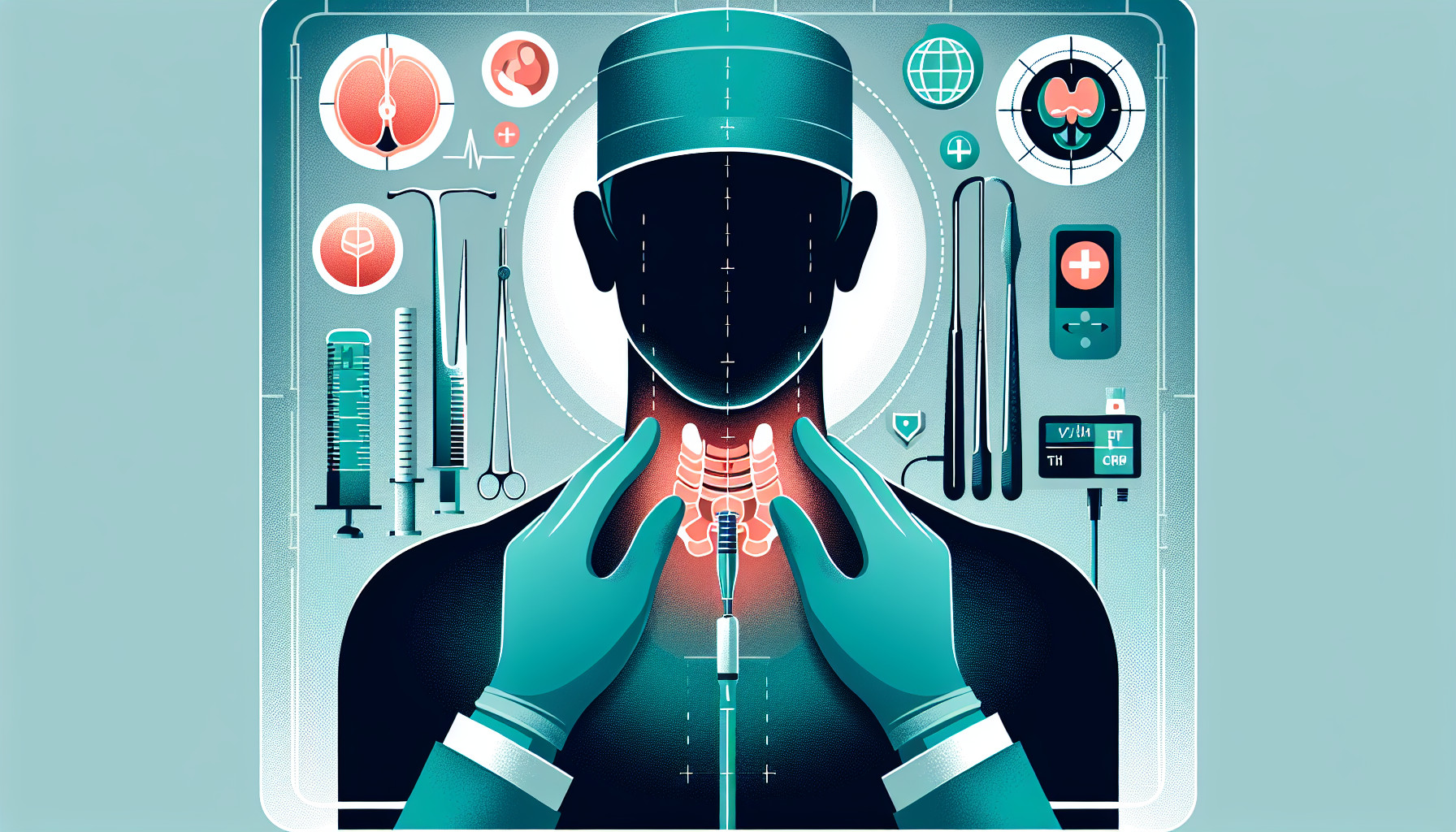Our Summary
This research paper is about the problem of hyperparathyroidism that still persists in 30-60% of patients a year after they’ve received a kidney transplant. Hyperparathyroidism is a condition where the parathyroid glands produce too much parathyroid hormone, causing a disruption in bone and mineral metabolism. This can lead to the deterioration of the kidney transplant, also known as an allograft. The paper explores when the best time to perform a parathyroidectomy (surgery to remove the parathyroid glands) is. Different transplant centers have different timings for this surgery due to uncertainty about its possible negative effects on the transplant. The aim of this paper is to provide surgeons with helpful information to create an effective plan for dealing with hyperparathyroidism after a kidney transplant.
FAQs
- What is hyperparathyroidism and how does it affect kidney transplant patients?
- What is a parathyroidectomy and when is the best time to perform it after a kidney transplant?
- Why do different transplant centers have different timings for parathyroidectomy surgery?
Doctor’s Tip
A doctor might tell a patient undergoing a parathyroidectomy to be aware of potential complications such as changes in calcium levels or the risk of recurrent hyperparathyroidism. They may also recommend following a healthy diet, monitoring calcium levels regularly, and staying hydrated to support recovery and minimize the risk of complications. It is important for the patient to closely follow post-operative instructions and attend follow-up appointments to ensure a successful outcome.
Suitable For
Patients who are typically recommended for parathyroidectomy include those with severe hyperparathyroidism that does not respond to medical treatment, those with symptoms such as bone pain, fractures, kidney stones, or muscle weakness, and those with complications related to hyperparathyroidism such as osteoporosis or kidney dysfunction. Additionally, patients with hyperparathyroidism after a kidney transplant who have not responded to other treatments and are at risk for allograft failure may also be recommended for parathyroidectomy. It is important for surgeons to carefully evaluate each patient’s individual situation and determine the best course of action for managing their hyperparathyroidism.
Timeline
Before Parathyroidectomy:
- Patient is diagnosed with hyperparathyroidism through blood tests showing high levels of parathyroid hormone and calcium.
- Patient may experience symptoms such as bone pain, fatigue, kidney stones, and fractures due to the effects of elevated parathyroid hormone.
- Patient undergoes imaging tests such as ultrasound or sestamibi scan to locate the abnormal parathyroid gland.
- Surgeon discusses the risks and benefits of parathyroidectomy with the patient, including the potential impact on the kidney transplant.
After Parathyroidectomy:
- Patient undergoes parathyroidectomy surgery to remove the abnormal parathyroid gland.
- Patient is monitored closely in the hospital for complications such as low calcium levels (hypocalcemia) and vocal cord paralysis.
- Patient may experience improved symptoms such as reduced bone pain and fatigue.
- Patient continues to be monitored post-operatively for calcium levels and kidney function.
- In the long term, patient may experience improved bone health and overall quality of life.
Overall, parathyroidectomy can be a beneficial treatment for patients with hyperparathyroidism, especially those who have received a kidney transplant. It is important for surgeons to carefully assess the timing of the surgery and monitor patients closely to ensure a successful outcome.
What to Ask Your Doctor
What are the risks and benefits of undergoing a parathyroidectomy surgery?
How will the surgery impact my kidney transplant and overall health?
What is the success rate of parathyroidectomy in treating hyperparathyroidism post-kidney transplant?
What is the recovery process like after a parathyroidectomy surgery?
Are there any alternative treatments for hyperparathyroidism that I should consider?
How long will it take for me to see improvements in my symptoms after the surgery?
Will I need to take any medications or follow a special diet after the surgery?
Are there any long-term complications or side effects associated with parathyroidectomy?
How often will I need to follow up with you after the surgery?
Can you provide me with more information on the specific procedure you will be performing and the experience of your surgical team in performing parathyroidectomies in patients who have had a kidney transplant?
Reference
Authors: Wang B, Li W, Wang Q, Zhang W. Journal: Biosci Trends. 2022 Dec 26;16(6):426-433. doi: 10.5582/bst.2022.01320. Epub 2022 Nov 19. PMID: 36403958
